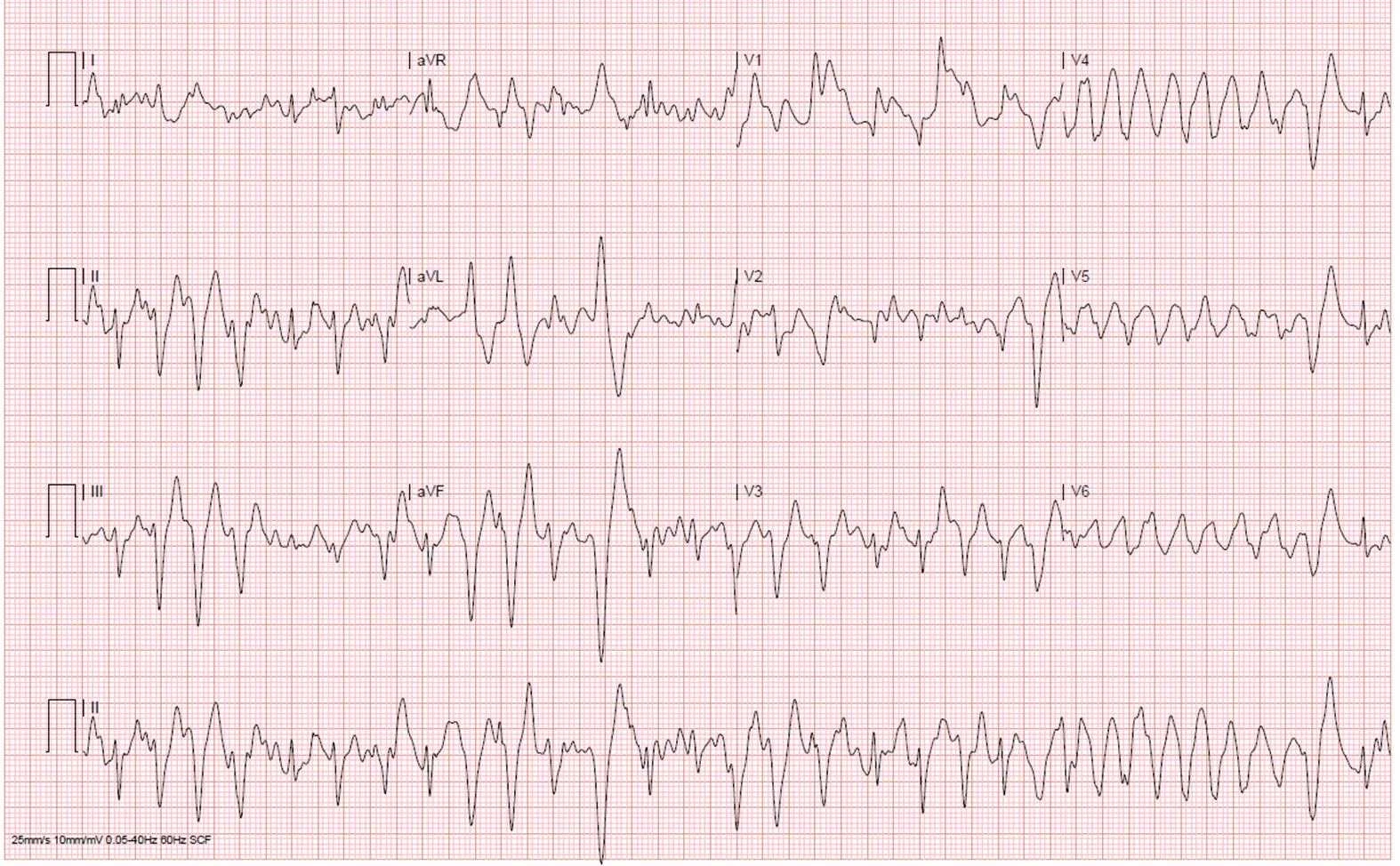MEDBULLETIN MAY 2023

Scenario:
The ECG is taken from stage 4 of an exercise treadmill test performed in a 44-year-old man who presented with occasional dizziness when exercising. He was previously well with no significant medical history or cardiovascular risk factors. He was not on any medication and did not smoke or take any alcohol. His father and brother both had palpitations which was managed medically.
Investigations- his resting ECG and baseline echocardiogram were normal. Blood tests, including renal function, thyroid function and lipid profile, were normal. He was referred for a CT coronary angiogram which showed normal coronary arteries and a mild myocardial muscle bridge in his mid- left anterior descending artery.
Questions:
- What does the treadmill test ECG show?
- What other investigations would be helpful?
- How should this patient be managed?
Answers:
- Polymorphic ventricular tachycardia during exercise
- Cardiac MRI scan (to assess for structural heart disease and myocardial scar/ disease); genetic testing for inherited arrhythmogenic diseases
-
The patient should be referred for further specialist cardiac evaluation.
His cardiac MRI scan was normal. Genetic testing showed a pathogenic mutation in one of the ryanodine receptor genes (CASQ2), making catecholaminergic polymorphic ventricular tachycardia (CPVT) a likely diagnosis. The patient was counselled accordingly and his three children and first-degree relatives recommended to be tested for the same mutation. He was started on a beta- blocker and advised to refrain from very strenuous activity.
(The LAD muscle bridge was an incidental finding and not clinically relevant.)
ANSWERS TO ECG QUIZ
MedBulletin May 2025
MedBulletin Nov 2024
MedBulletin April 2024
MedBulletin Dec 2023
MedBulletin May 2023
MedBulletin Nov 2022
MedBulletin May 2022
MedBulletin Nov 2021
MedBulletin Mar 2021
MedBulletin Sep 2020
MedBulletin April 2020
MedBulletin Sep 2019
MedBulletin March 2019
MedBulletin Sep 2018
MedBulletin March 2018
MedBulletin Sep 2017
MedBulletin March 2017
MedBulletin Sep 2016
2016 Quiz
2015 Quiz
MedBulletin May 2025
MedBulletin Nov 2024
MedBulletin April 2024
MedBulletin Dec 2023
MedBulletin May 2023
MedBulletin Nov 2022
MedBulletin May 2022
MedBulletin Nov 2021
MedBulletin Mar 2021
MedBulletin Sep 2020
MedBulletin April 2020
MedBulletin Sep 2019
MedBulletin March 2019
MedBulletin Sep 2018
MedBulletin March 2018
MedBulletin Sep 2017
MedBulletin March 2017
MedBulletin Sep 2016
2016 Quiz
2015 Quiz